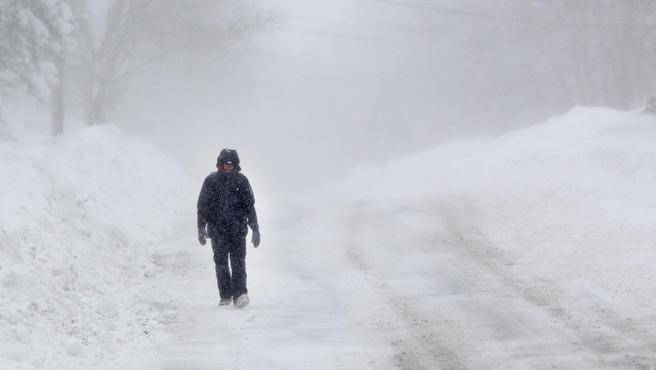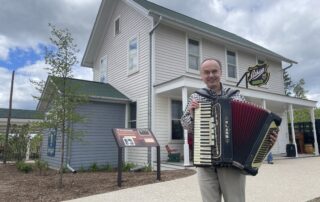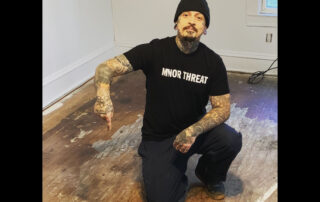Driving home on a snowy night, author Crystal Chan and her mother encountered a hitchhiker in the blowing snow. The question of whether to pick him up or not led her to explore the meaning and limits of compassion.
==
It was a bad snowstorm, the kind that wipes out your vision, erases the world, and makes you break for a red light a full city block before you come to the intersection. It was nighttime and my mom and I were in the car heading home, over the viaduct on 20th Avenue, in Oshkosh. The radio was off as my mom handled the vehicle on the heavy, slippery roads.
That was when we saw him: a figure, hunched over, walking on the sidewalk on that viaduct, in full blast of the winter storm. In fact, because of the storm, we almost didn’t see him.
“What could he possibly be doing in a storm like this?” I asked my mom.
“I don’t know,” she said.
He trudged along. We inched along.
Mom paused. “Should we pick him up?”
I was surprised at her question. There are a lot of dangers out there. Murderers and rapists and thieves. There we were, two women in a car, in a snowstorm, the heater blazing. There he was, a young man, hunched over into the blinding winds, almost disappeared from view. You couldn’t help but feel for him.
I’d never picked up anyone before. I had a good hunch that my mom hadn’t, either.
“Yeah,” I said. “Let’s pick him up.”
I rolled down my window. “Hey, where are you going?” I asked.
He told us. The location was halfway across town.
In the darkness, I looked at Mom and she looked at me. I looked back at him. “Come on in if you want,” I said. “We’ll take you there.”
We rolled to a slow stop and he opened the door to the back seat. A blast of cold air followed him in.
We asked him some general questions, but he didn’t say much, so we crawled through town in silence. I was sweating under my winter coat. He is in our car, I thought. I cannot believe we actually picked up a stranger.
Mom gripped the steering wheel with both hands.
The man spoke only to give us directions to the house, and when we pulled alongside it, he thanked us twice, then got out. As soon as he left, it was as if a sudden storm had lifted, even though it was still snowing. We turned around and crawled our slow way home, both deeply shaken, both deeply pleased.
It’s easy to say that compassion is a good thing. It’s much harder to live it out – especially when you need to weigh things like risk and danger and fear. Mom and I both agreed that had we been the only one in the car, we would have kept driving. If there had been two men walking, we would have kept driving. And so forth. There are no easy answers, and I’ve messed up this equation more times than I’d like, preferring the route of safety to the route of lived-out compassion. But in extending that gesture of human decency, somehow I felt more human in the process, more connected, less alone. It can be mysterious how compassion works, and how the strangest gifts can come, in the strangest packaging, in a snowstorm on a cold, winter night.
(This story originally aired on December 30, 2015.)








